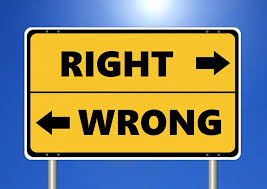Navigating Ethical Dilemmas in Procurement While Building Transparency and Trust
Procurement professionals often operate at the intersection of business strategy and operational execution, which can sometimes expose them to ethical dilemmas. These challenges may range from managing conflicts of interest and addressing unfair supplier practices to ensuring compliance with anti-corruption laws. How professionals navigate these situations not only impacts their careers but also the integrity and reputation of their organisations.
The Stakes in Ethical Procurement
Ethical lapses in procurement have significant consequences. Take, for example, the infamous Petrobras scandal in Brazil, where corruption in procurement and contract management led to billions in losses and tarnished the company's reputation. Closer to home, in the UK, the Serco and G4S overbilling scandal highlighted how unethical practices in contract management can lead to financial penalties, loss of public trust, and long-term damage to credibility.
These examples underline the critical need for procurement professionals to act as stewards of transparency and accountability.
Identifying Ethical Dilemmas in Procurement
Common ethical challenges in procurement include:
Supplier favouritism: Awarding contracts based on personal relationships rather than merit.
Conflicts of interest: Having a financial or personal interest in the outcome of a procurement decision.
Bribery and corruption: Accepting gifts, incentives, or kickbacks to influence decisions.
Lack of transparency: Failing to disclose decision-making criteria or not adhering to regulatory requirements.
Strategies for Navigating Ethical Challenges
To successfully navigate these ethical dilemmas, procurement professionals should adopt a framework rooted in transparency, accountability, and proactive governance. Here’s how:
1. Establish Clear Procurement Policies
Set explicit guidelines outlining acceptable and unacceptable practices. Policies should cover everything from conflict-of-interest declarations to supplier evaluation criteria. Regular training sessions can reinforce these principles and keep teams updated on new regulations.
Example: Global firms like Unilever enforce robust supplier codes of conduct, requiring vendors to adhere to ethical standards. Such measures ensure alignment across the supply chain.
2. Leverage Technology for Transparency
Digital tools like procurement platforms can enhance accountability. Automated systems ensure that procurement processes are consistent, auditable, and free from undue influence.
Example: The NHS in the UK uses e-procurement platforms to streamline tendering processes and reduce opportunities for favouritism or errors.
3. Encourage a Speak-Up Culture
Organisations must create environments where employees feel comfortable reporting unethical behaviour. Whistleblower protections and anonymous reporting mechanisms are key.
Example: Companies like Siemens have implemented internal reporting channels to identify and mitigate ethical risks effectively.
4. Adopt Ethical Leadership
Leaders must set the tone from the top. Ethical procurement begins with leaders who model integrity, hold themselves accountable, and promote transparency.
Example: In 2020, Microsoft pledged to hold its suppliers to the same ethical and sustainability standards it practices internally, emphasizing leadership’s role in procurement ethics.
5. Stay Updated on Legal and Regulatory Changes
Procurement professionals should stay informed about relevant laws such as the UK Bribery Act or GDPR regulations. This knowledge not only ensures compliance but also enhances their ability to guide their organisations through complex procurement landscapes.
Building a Sustainable Career in Ethical Procurement
A commitment to ethical procurement not only safeguards organisational integrity but also boosts individual credibility. Procurement professionals known for upholding high ethical standards are often trusted with greater responsibilities and leadership roles.
Additionally, certifications like the Chartered Institute of Procurement and Supply (CIPS) Ethics Certificate can bolster your credentials and demonstrate your commitment to transparency.
Conclusion: The Path Forward
Ethical dilemmas in procurement are inevitable, but they are not insurmountable. By adopting robust policies, leveraging technology, fostering ethical leadership, and committing to transparency, professionals can navigate these challenges effectively. Organisations, in turn, benefit from improved trust, reduced risk, and long-term success.
For procurement professionals in the UK, Langley Search and Interim can provide career opportunities with employers who value integrity and ethical practices. With the right skills and principles, you can drive impactful, transparent procurement practices and set yourself apart as a leader in the field.


